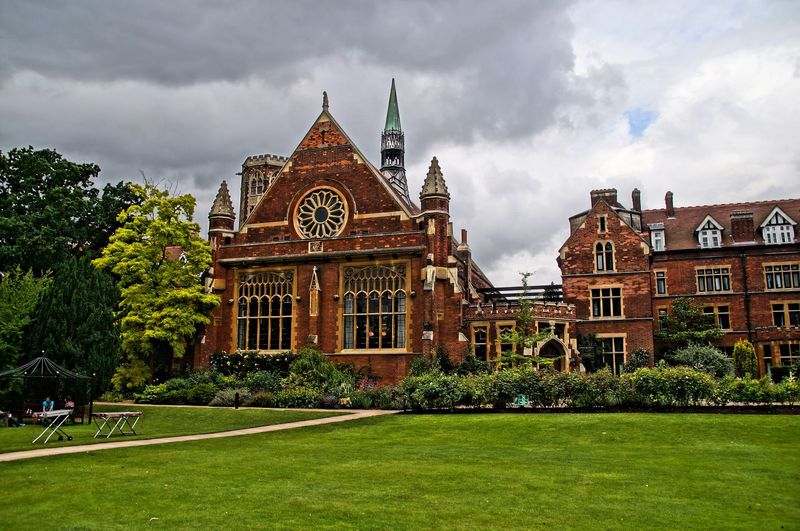- The oldest universities in the world.
- How did the first universities be established?
- The system of education in the first universities.
- Top 10 of the oldest universities, according to the educational portal Kudapostupat.
Do you think it was “so dark” in the Middle Ages time like they say so? Not sure. After all, during the XII-XV centuries, the first higher education institutions were established, and students still study there nowadays. Each of these universities has undergone a difficult path from foundation to prosperity. Each of the institutions has its own fascinating history, in which you can find several stages of formation, prosperity, and decline. These universities were and remain centers of highly developed science, symbols of the high degree of knowledge.
We have collected Top 10 of the oldest universities according to the Kudapostupat portal, where you can study and get the higher education even today.
The oldest universities in the world.
The first educational institution was established in Constantinople in 425 but received the status of the university only in 855. Ancient sources said that the institution was more known as the University of the Palace Hall of Magnaura. The university lasted until the Constantinople was fallen.
In the VIII-X centuries, the following higher educational institutions were founded:
— The University of Ez-Zitouna (732), now known as the Faculty of Theology at the University of Tunisia;
— The University of al-Qarawiyyin, also known as Al-Karaouine (859) — Moroccan educational institution, recognized by the Guinness Book of Records as the oldest among the world educational institution, which did not cease its activities. But the university did not give the diplomas of education, as the students were taught by individual mentors.
— The Al-Azhar University (970) — a university founded in Cairo and functioned at a mosque. Today it is the real Egyptian brand and the largest educational institution in the Arabian world. But the university is too traditional and does not use innovative technology in education.
None of them function as an autonomous university these days, that is why they did not get to our Top.
How did the first universities be established?
The prototype of the classical university, as an autonomous institution of higher education, was formed in the Middle Ages in Europe. They were engaged in the professional preparation of a high level of exact, humanitarian and natural sciences. In addition, research is considered to be a priority in universities.
The first universities in Europe have appeared at monasteries. In large cities, teachers began to unite to teach scouts. These associations were called corporations, which represented the ancestors of classical universities.
The term “University” itself appeared in the Bologna community and called a group of students and lecturers who gathered for study.
The system of education in the first universities.
The educational process that times consisted of lectures conducted by professors. Usually, they were reading books of famous philosophers (Aristotle, Pythagoras, Socrates), doctors (Hippocrates), theologians. There were also disputes or discussions. Students were obliged to attend all lectures, participate in discussions and write treatises. The training was quite complex, so the bachelor’s degree received 33-35% of the total number of students. The master’s degrees could get only a few.
There were only four faculties in each university:
- Theology
- Law;
- Medicine;
- Art (“Seven free arts” — trivium: rhetoric, logic, grammar, quadrivium: mathematics, music, astronomy, geometry).
The term of study for the bachelor’s degree was 5-7 years. To get the title of “doctor of sciences”, students needed to study 11-13 years.
Top 10 of the oldest universities, according to the educational portal Kudapostupat.
- Bologna University (Bologna, Italy) founded in 1088 as a law school. It got university title only in 1153. Among the graduates of this university you can find the names of three Popes, writer Umberto Eco even was conducting several courses here. Writers Dante Alighieri, Francesco Petrarca, artist Albrecht Durer, physicist Luigi Galvani, physicist-astronomer Nikolai Copernicus also studied here. The University of Bologna today occupies the only 176th place in the ranking of the best educational institutions in the world. This indicates that the quality does not always depend on the age of the institution. One of the most valuable libraries in the world is precisely Bologna University one, it was founded in 1605 by Professor Aldrandy.
- The first English-language university, Oxford, was founded in Oxfordshire In 1117. At that time, it was the largest city in the kingdom. It was decided to create a university there in order for clerics to have the opportunity to get a complete education. In the XIII century, some students and faculty were forced to leave campus, so they founded the University of Cambridge. Among the graduates of the university are: writer Jonathan Swift, Oscar Wilde, physicist Stephen Hawking, politician Tony Blair, Margaret Thatcher, Harold Wilson, two kings of England, Tim Berners-Lee — the founder of the World Wide Web. The University has 40 individual colleges, which together constitute autonomy.
- The second most prestigious university in Great Britain — Cambridge, founded in 1209. The University leads the number of graduates who have received the status of Nobel laureates. As of 2009, this number was 83 winners. The educational institution is based on the example of the University of Paris. The most famous building is the Royal Tower. Each year on Christmas the performance of the boys’ choir in this cathedral is broadcast by national television. Among the most well-known and successful graduates of the University of Cambridge, you can find the names of physicist Isaac Newton, scientist Charles Darwin, Lord Protector Oliver Cromwell’. Today Cambridge consists of 31 colleges.
- The University of Salamanca, Spain, was founded in 1218 as a public educational institution. The university’s status was officially was given in1255. The initiative to create the university belongs to the king of Spain Leone Alfonso IX. Scientists from Italy, France and all over Spain were invited to teach at the university. It was the University of Salamanca, the first to openly introduce into the educational process Heliocentric system of Copernicus, which was subject to the Inquisition at that time. Christopher Columbus first told about his projects and travels in the walls of this institution. The University is located in the heart of Salamanca and impresses with its unique architecture. Among the outstanding graduates and teachers, many Spaniards, among them the most well-known author of the “Don Quixote” Cervantes.
- In the city of the University of Padua, Italy, since the XIII century, there were church schools, private institutions for the arts, law and notarial affairs. In 1222, insulted teachers and students from Bologna University came to Padua and founded their educational institution. That is why Padua became a symbol of freedom. The development of the educational center also contributed to the fact that in a few years the city was founded a Dominican monastery. Here he taught astronomy himself Galileo Galilei, as well as lectured his lectures Copernicus, Nicolas Cusa, Francis Skorina. The Library of the University of Padua is the oldest in Italy and has more than 700 thousand volumes. Today, more than 65 thousand students from Italy and from different parts of the world study in Padua.
- Another well-known university in Italy was founded in 1224 in the city of Naples. Then it was founded as a school in the Sicilian Kingdom. Naples University was the first in Europe to operate without the papal bull. The university is named after Emperor Frederick II, who gave the institution full autonomy. Friedrich wanted to teach here civil servants, lawyers, bureaucrats and judges, and also sought to attract young people to the city. To date, almost 100,000 students study at this institution.
- In 1240, another well-known university, Sienese, was founded in Italy. The educational establishment is based on the Philosophy and Humanities School. The University strongly supported the Pope, exempting professors from taxes. Instead, the locals took a tax for renting apartments for students, and for the received funds, paid salaries for professors. This is the first instance of a state university in Europe. Prospective graduate students from Bologna also partially moved here. In recent years, the university has managed to grow from 4 thousand students to 20 thousand.
- Next in the rating is the University of Valladolid, Mexico. The school was founded in 1241 and is the successor of the University of Palencia. The main building of the modern university is hiding behind the medieval walls of the baroque style. There are also entire campuses in three cities. Today the university has more than 36 thousand students and 2 thousand teachers.
- In 1290, another well-known university founded in Italy. It is a higher educational institution in the city of Macerata. The University preserves medieval buildings that allow you to feel the spirit of antiquity more deeply. Studying at such an institution is really exciting. Buildings of the university are located not only in the city of Macerata but also in the neighboring towns. The main areas of study are humanities and sociology.
- In 1290, the University of Coimbra in Portugal was also founded. At first, the establishment operated in Lisbon, but in 1308 it was moved to Coimbra. The school has one of the oldest libraries in Europe and is listed on the UNESCO list of cultural heritage. Today, more than 23 thousand students study at Coimbra University. The distinguished Portuguese politicians, writers, historians, and Nobel laureates studied at the university in different years.
In general, according to the international edition Scientometrics, more than 17,000 higher education institutions operate worldwide. 5746 higher education institutions from 36 countries around the world are represented in our educational portal Kudapostupat. Therefore, all interested persons have the opportunity to get acquainted not only with the oldest universities, but also with modern educational and scientific centers, and to choose the most worthy.
Read also our Top 10 Top Books for preparing for the IELTS test.
Sign up for our news and follow the updates in our Facebook group.


 kudapostupat
kudapostupat














 1944040
1944040 



















